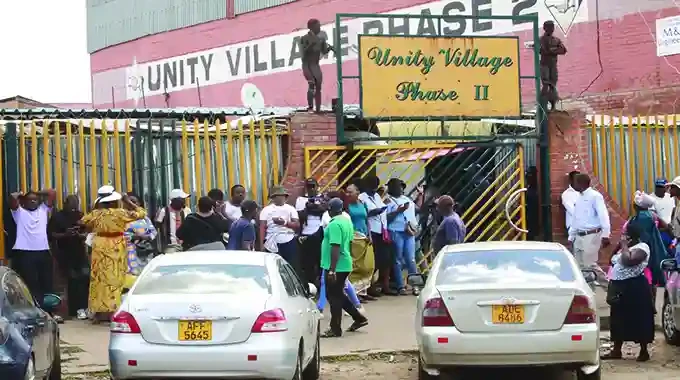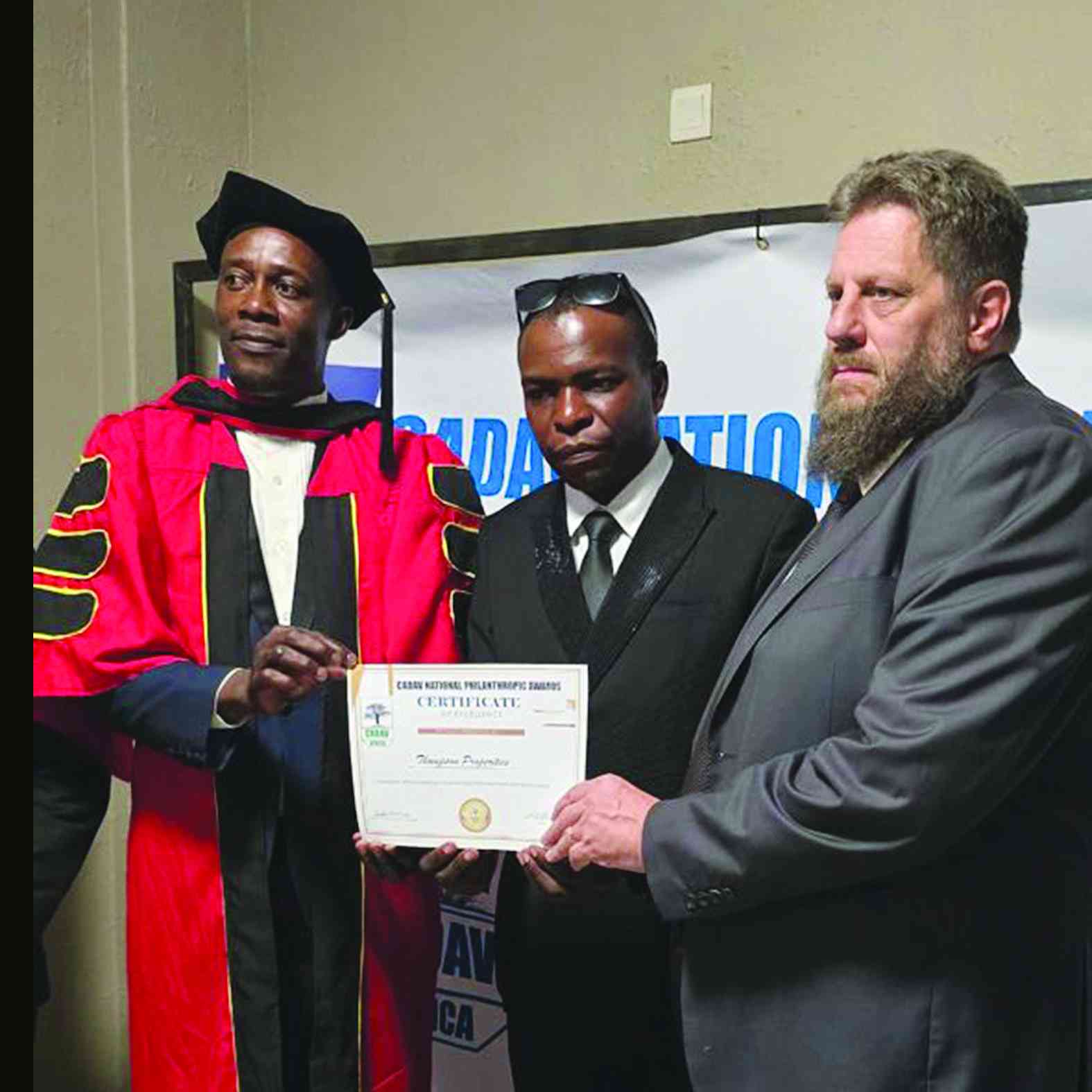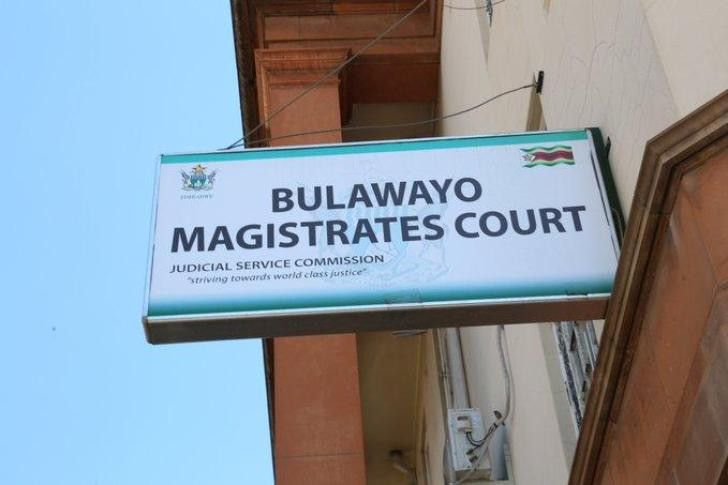BEHIND the scenes of incredible visuals of a song is the music video director who executes his skills to come up with a captivating video for a song.
These people have made a huge contribution which have helped in shaping the visual representation of iconic songs in history.
Vusa Hlatshwayo is one such person who has made a big contribution in the world of music with his tag “Umsebenzi Ka Blaqs” having directed songs such as Dzamutsana by Jah Prayzah, ExQ featuring Ammara Brown video Bhachura and Haaroore by Takura, among other successful projects.
Hlatshwayo, like any other person, lives a separate life from his line of work characterised by various activities, friends, emotions and wishes to outdo the person he was yesterday.
NewsDay Weekender Life & Style caught up with the award-winning videographer, who spoke about his life away from the camera and video production.
Family
Keep Reading
- Over 115 to exhibit at Mine Entra
- Young entrepreneur dreams big
- Econet bemoans power outages
- Govt opens ChiTown e-passport centre
I am a father of two boys, Ayanda and Andile, who are very exciting to play around and work with because they seem to have shown an interest in what I do.
I have a feeling that if they just pick it up, they will be great in a short space of time. That is one thing I am happy about.
Despite his tight schedules, he has hobbies
I like being a storyteller. I tried so many things, but nothing appeals to me more than walking. I feel like it is the most liberating experience; it is something you can do anywhere, and it is very therapeutic for me.
If there is a tournament I should be part of it and contend for, it is a walking competition. I barely get free time and when I do, I get into research about the next things that I want to do, experimenting and trying out new things in my own space or it could be meeting with friends discussing a certain movie, or just walking.
I’m one person who can walk from here (Milton Park) to Mufakose and come back and you won’t even know that I was gone. I can just quietly go and then come back.
Valuable friendships
I have many different levels of friends. There are times I feel like I need to hang around with high profile friends.
The people that I spend most of my time with are people around me and other budding artistes and we use the opportunity to learn from each other.
I do not have a friend who is just there to be a friend, but someone who can give me ideas about something. So I hang around with people who are within my sphere of influence and things that I am interested in.
Right now, I am playing with my friend Tinashe Sahanga “Karizma”.
He is a hip-hop artiste and has taken a more administrative role managing upcoming artistes.
You may think that it is a forum or a seminar when you see me with my friends because it is about discussions, how to move this project to that point and it is always like that.
My other friend Tendai Gomba “Megour” runs a clothing label from the University of Zimbabwe called Black Effect which is quite popular among the young people and the other one Chris is running a social media page called Eyes of 263.
At any given time in this place (his home), you may find musicians, other video directors and I consider them friends because we have conversations of an extended length.
Meeting Jah Prayzah and maintaining good relations
I have a good relationship with Jah Prayzah. I met him at a local radio station on World Radio Day. I met him through Prosper “Comic Pastor” Ngomashi for a very short time.
By that time, Jah Prayzah was wearing one of his stage outfits. He was scary and very tall. I was intimidated, but when he welcomed me, I was very encouraged.
I was introduced to Jah Prayzah again by ExQ. It was interesting how he welcomed me into his office.
When I went there, he called everyone and they spoke to me respectfully. We usually spend time together with his family. There were three or four times I slept over at Jah Prayzah’s house, we are very close.
An extended family played a crucial role in his life
The first memory I get about my family is an extended family in a rural set up in Kwekwe. We had family land that was allocated to members, and we lived like a village.
The system of governance there was that all children were disciplined by everyone in that community. Everyone got the same kind of punishment; we were raised as a group of children.
My cousins and I became a team and we could have plans against the parents sometimes and covered up for each other.
However, as I was introduced to the bigger city, I found that I was a little bit out of place because I was used to a support structure.
I think I spent most of my years trying to recapture that family spirit even now through bringing people together into the different things I do. I like it when people are together like it says in the Bible, “When two are gathered in my name I will be there among them” in Matthew 18:20.
Uniting people and having them enjoy a shared experience to me is one thing that I like. Being raised with different characters that you must learn to be close with even though there are different lines between us taught me to form a team and work and get rid of personal differences. I think that is what made me a good organiser and director to manage people.
About his biological family
I have a very interesting family. My father is late, but my mother is alive. We are four, I am the first born and three are girls.
One sister, Judith is in South Africa. She is a pre-school teacher. Another one, Violet, is a nurse here in Zimbabwe and the last-born, Juliet, is here in Zimbabwe sorting her things out to become a small business owner of make-up products and we are supporting her as a family.
It was not easy managing my sisters growing up and the fact that made it worse was that my father always travelled. He would leave me with a task to manage them, but my mind was not in controlling people because I had my own things to take care of. Problems would come, my sisters would get into trouble, and they would come to me.
At some point, I ended up telling them that you can take care of your problems. I am not interested in your business.
The same goes with my children. I know that they must experience life on their own at some point, so it is better now that they make mistakes and grow.
He wanted to become a writer
At first, I wanted to be a writer, so I used to buy books and read. I had a collection of almost 200 books because I wanted to know how it felt like to be a writer.
I wrote a book of about 32 poems that I did not publish. I remember there was an International Book Fair in Bulawayo at the Art Gallery when I was a teenager.
I met Tafataona Mahoso. I then read him an extract of about three lines from the poem and he said, “You are very good, your future is bright. Keep writing.”
There was a time I felt writing was going to get out of style, so I wanted something better than writing. I also went to write other forms of content like film. I tried different ways of expressing myself. Those are the things that have landed me where I am now. I saw myself as a musician when I was very young, then into writing and then back to film.
Growing and opportunities
Being honest, growing up we were not given equal opportunities. I enjoyed most of the attention and it is not because my parents were sexists or that girls cannot do anything.
It was the tradition, remember the kind of family that I came from, an extended one. Even if I was the youngest boy in the whole family, I was given more opportunities, but at the same time I had many responsibilities. When I go to my rural home, I am the father of the family even when I feel like I am still a young man.
First job experience and consequences of rushed decisions
I was a primary school teacher at St Mary’s Primary School in Silobela. My father encouraged me to pursue temporary teaching while I waited for my Advanced Level results.
The fact that I went to that school helped a lot. I was quite “the guy” at school, getting straight As. I was in the choir, I was just everywhere.
It was amazing working with kids, I thought it was easy, but it was very hard. There was a time I decided to quit my first job to do something about cameras that was driving me crazy, which was not a very good decision at the time. It led to so many disappointments. I was in financial trouble.
Why celebrities do not like to talk about relationships
I think it is just a basic need for people to have privacy. Sometimes our fans that we love so much forget that we are people, we go through traumas as well. We are not invincible. They forget that we go through divorce and emotional relationship stuff.
There is a time you just want to be left alone to find ways to deal with issues without the influence of other people.
But some people want to monetise that, not knowing the emotional traumas that we go through when our privacy has been invaded.
It is hard to find peace when you are in the public space the whole time. Some of the private issues need you to be alone to reflect without people around you and listen to the voice of God alone.
Celebrities do not have it all
The reality on the ground is that our economy is not in a very good state. It is difficult for a Zimbabwean to make money consistently.
These struggles need a focused person and there are too many distractions for public figures sometimes. Social people try to use their influence to make money.
People expect public figures not to have problems at all. We are supposed to know exactly how to figure things out perfectly and if we make mistakes, it is our fault and things get scandalous.
I, however, do not want to blame people for thinking that way because we also must check what people are consuming.
Reflects on how he views the world
I can talk about what motivates me now as compared to what motivated me then. I now view the world differently.
When I started, I just wanted to be a rock star, be the person that people can always come to and get to a point where I resurrected some people.
It was ego-driven at the beginning. It was mostly about me being at the top and nobody else and then what? Now, the focus has changed.
I have seen so many young people that are talented out there. In the middle of what I would call a “drug and substance pandemic” in the country, I witnessed young boys, some in Chitungwiza, who own a clothing shop.
They buy pre-loved clothes and arrange them into very beautiful outfits.
These young people are not being told how they should do it, but they are creating an industry for themselves. I saw it with my own eyes.
The focus has shifted to how we can make these young people create a viable industry. I am currently engaging young people to see how we can transfer skills to them.
I cannot be part of a generation that cannot create another intelligent generation, passing generational wealth. Young people are pushing in their little corners.





